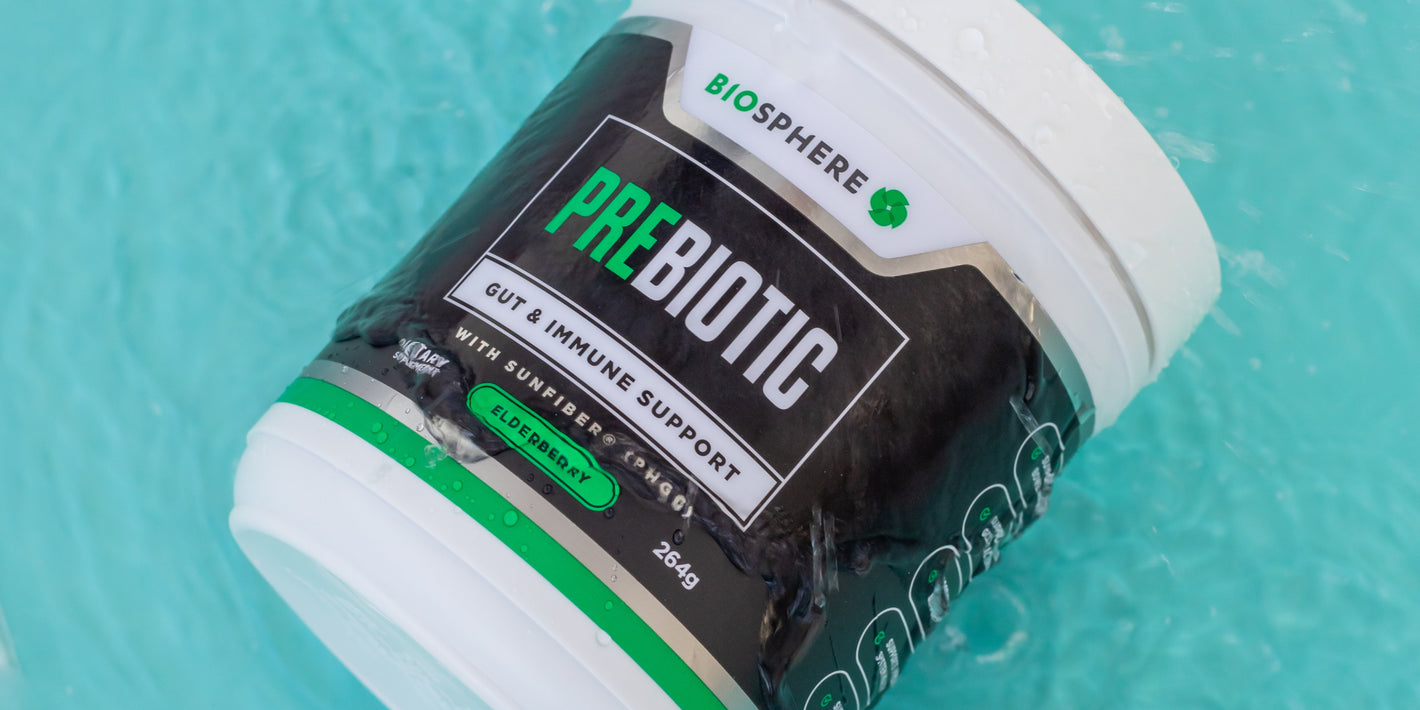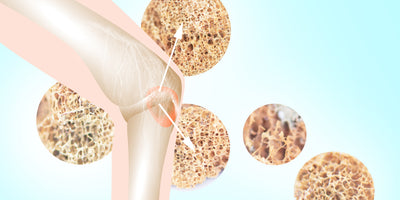
7 Early Indicators You Need Prebiotics in Your Diet
Introduction
Gut health is a cornerstone of overall wellness, influencing everything from digestion to immune function, and even mental health. In this light, prebiotics—types of dietary fiber that feed the good bacteria in your gut—play a crucial role. However, the signs that you might need more prebiotics in your diet can be subtle. Recognising these early indicators can help you adjust your dietary habits for better health outcomes. This article explores seven telltale signs that suggest your diet might be lacking in prebiotics, providing guidance on how to remedy this and boost your health.
1. Frequent Digestive Discomfort
If you often experience bloating, gas, or stomach cramps, it might be a sign that your gut flora is out of balance. Prebiotics serve as fuel for the beneficial bacteria in your digestive system, helping to restore balance and reduce discomfort. When these beneficial bacteria are well-fed, they produce less gas and help break down food more effectively, alleviating bloating and cramps. To incorporate more prebiotics into your diet, consider adding foods like garlic, onions, leeks, asparagus, and bananas, which are rich in these vital fibers.
Moreover, the improvement in your gut health from prebiotics can also enhance nutrient absorption, leading to better digestive health overall. Regular intake of prebiotic-rich foods can steadily decrease the frequency and intensity of uncomfortable digestive symptoms. Including a variety of prebiotic sources ensures a diverse microbiome, which is key to a smooth and efficient digestive process.
2. Irregular Bowel Movements
Irregular bowel movements, such as constipation or diarrhea, can often indicate a dietary deficiency in prebiotics. By fostering a healthy gut microbiome, prebiotics help to regulate bowel habits and ensure soft, regular stools. The fermentation of prebiotics in the gut produces short-chain fatty acids that draw water into the colon, which helps to soften stools and promote regularity.
Adding prebiotic-rich foods like chicory root, Jerusalem artichoke, and dandelion greens to your diet can improve bowel regularity. If you are new to prebiotics, it's advisable to introduce them gradually to allow your digestive system to adapt without excessive gas or discomfort. This gradual introduction helps your body to adjust and promotes the continuous growth of beneficial gut bacteria, easing symptoms of constipation and stabilising patterns of diarrhea.
3. Persistent Skin Issues
Emerging research suggests a strong connection between gut health and skin conditions such as acne, eczema, and rosacea. An imbalance in gut microbiota can lead to inflammation that might manifest as skin problems. Prebiotics help to bolster gut bacteria which can combat inflammation and subsequently improve skin health. By reinforcing the gut-skin axis, prebiotics can play a pivotal role in managing and even preventing flare-ups of skin conditions.
Incorporating foods high in prebiotics can aid in the management of skin issues. Foods like asparagus, onions, and whole grains not only nourish the gut but also help in detoxifying the body, which can result in clearer skin. Additionally, a healthy intake of prebiotics reduces the systemic inflammation that often exacerbates acne and other skin conditions, leading to noticeable improvements in skin texture and appearance.
4. Constant Fatigue and Low Energy

Constant feelings of fatigue and low energy may also be linked to poor gut health. When your gut microbiome is out of balance, it can affect the body's ability to absorb nutrients such as B-vitamins and iron, which are crucial for energy production. Prebiotics enhance the growth of good bacteria, which aids in better nutrient absorption and can lead to improved energy levels. By supporting a healthy gut environment, prebiotics ensure that your body can extract the energy it needs from your diet.
To counter fatigue, integrating prebiotic-rich foods like barley, oats, and apples into your daily meals can be beneficial. These foods not only provide the fibers needed to boost your gut flora but also include other essential nutrients that support overall vitality and well-being. As your gut health improves, you may find an increase in your energy levels, making it easier to stay active and focused throughout the day.
5. Frequent Colds or Infections
If you find yourself catching colds or other infections frequently, this could be a sign of a weakened immune system, closely tied to the health of your gut. Approximately 70% of the immune system is located in the digestive tract, relying heavily on the balance of gut microbiota to function properly. Prebiotics help by feeding the good bacteria, which in turn can strengthen the immune barriers against pathogens.
Eating prebiotic foods such as bananas, onions, and garlic can boost immune health by enhancing the production of immune cells and antibodies in the gut. This fortification not only helps you recover faster from illnesses but also bolsters your defences against future infections. Maintaining a prebiotic-rich diet can thus be a key strategy in enhancing your immune resilience.
6. Unexplained Weight Changes
Unexplained weight gain or loss can sometimes be attributed to imbalances in the gut microbiome. A healthy gut flora helps to regulate metabolism and can influence body weight by impacting how you process and store calories. Prebiotics contribute to a balanced gut, which can stabilise your weight by enhancing digestion and nutrient absorption.
Incorporating prebiotics through foods like legumes, grains, and tubers can help manage your weight effectively. Not only do these fibers help regulate your gut bacteria, but they also increase feelings of fullness, reducing the likelihood of overeating. As your digestive health improves, you may notice a more stabilised weight that reflects your healthy eating habits.
7. Food Cravings and Poor Diet Choices
Frequent cravings for sugary or unhealthy foods can be a sign of a gut microbiome in distress. When the balance of gut bacteria tips in favor of harmful bacteria, it can increase cravings for the types of foods that feed them, like sugars and refined carbohydrates. Prebiotics help restore balance by nourishing beneficial bacteria, which can diminish unhealthy cravings and support better dietary choices.
To curb these cravings, integrating prebiotic-rich foods like artichokes, leeks, and whole grains into your diet is effective. These foods help regulate your appetite and reduce cravings by stabilising blood sugar levels and promoting a healthy gut environment. Over time, a diet rich in prebiotics can lead to fewer cravings and a more balanced approach to eating.
Summary
- Frequent Digestive Discomfort: Symptoms like bloating, gas, and cramps can be alleviated by prebiotics which nourish beneficial gut bacteria and help in food breakdown.
- Irregular Bowel Movements: Prebiotics promote regular bowel movements by supporting a healthy gut microbiome and enhancing the consistency and frequency of stool production.
- Persistent Skin Issues: Skin conditions such as acne, eczema, and rosacea can improve with a balanced gut microbiome supported by prebiotic intake, which reduces inflammation.
- Constant Fatigue and Low Energy: A balanced gut flora, achieved through prebiotic-rich foods, aids in better nutrient absorption, thus increasing energy levels and reducing fatigue.
- Frequent Colds or Infections: Strengthening the immune system through a prebiotic-enhanced diet can reduce the frequency of infections and boost overall immune health.
- Unexplained Weight Changes: Prebiotics help stabilise weight by enhancing metabolism and improving the gut’s ability to process and store calories efficiently.
- Food Cravings and Poor Diet Choices: Prebiotics can reduce cravings for unhealthy foods by stabilising blood sugar levels and promoting a healthier gut flora, which influences dietary choices and appetite.
Prebiotic Information
For everything you need to know about prebiotics and prebiotic supplements, check out our comprehensive information page here.
Prebiotic
Biosphere Nutrition’s Prebiotic Powder is a unique blend of Sunfiber® and Black Elderberry Extract, designed to nurture gut health and support the immune system. This easy-to-mix, great-tasting formula ensures optimal absorption and digestive comfort. To learn more about our Prebiotic, check out the product page here.







